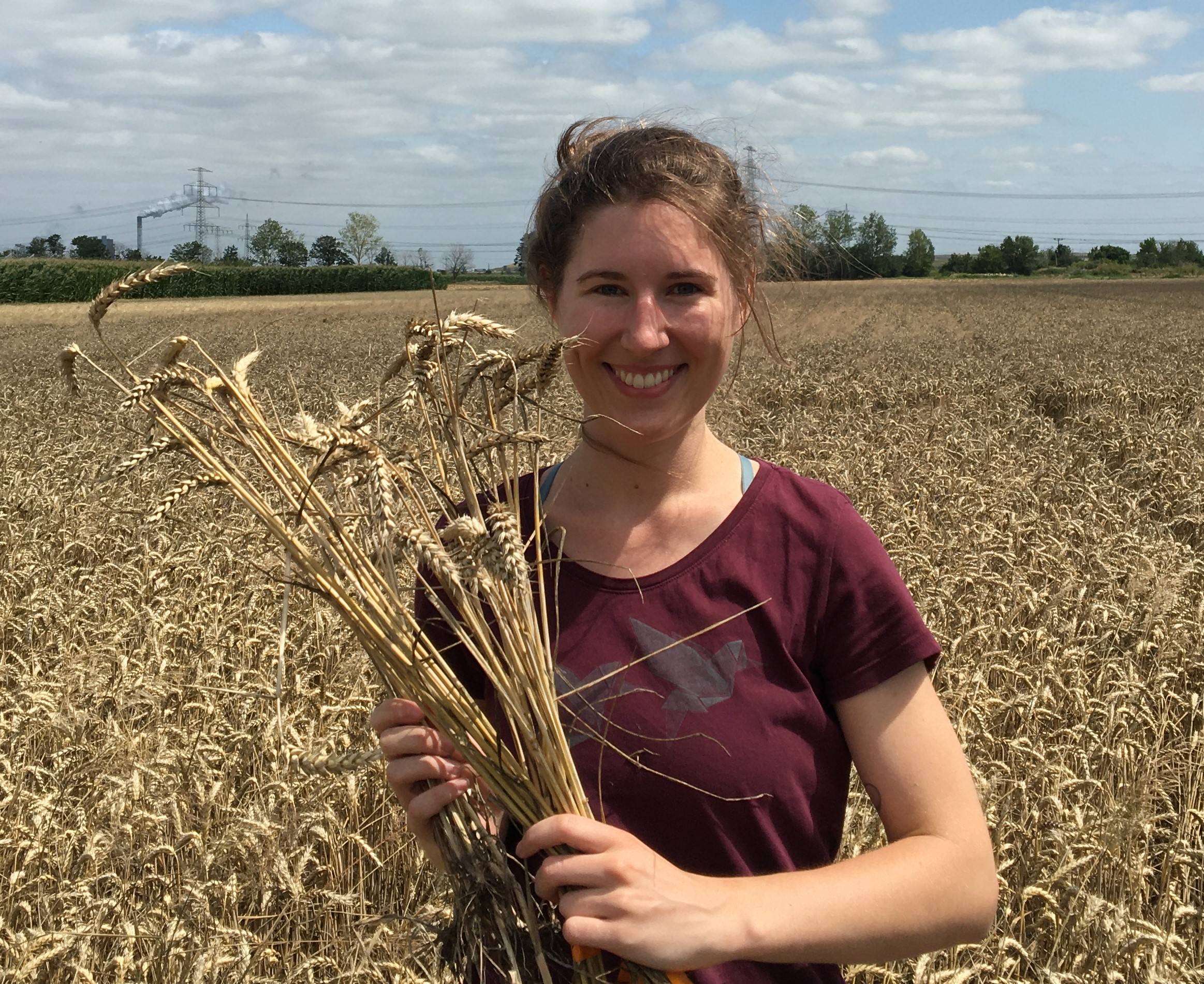Aleksandra Pieńkowska
Kontakt
Aleksandra Pienkowska
PhD Student
Department of Applied Microbial Ecology
Working Group Plant Biogeochemistry
Helmholtz Centre for
Environmental Research - UFZ
Permoserstr. 15, 04318 Leipzig, Germany
aleksandra.pienkowska@ufz.de

Education
since Feb. 2021
Ph.D. student
Department of Applied Microbial Ecology, Helmholtz Centre for Environmental Research UFZ Leipzig
Project title: Adaptation of agriculture systems to metal and climate change stressors.
2018 - 2021
M.Sc. in Applied & Environmental Geoscience
Faculty of Science, University of Tübingen
Thesis: Microbially-mediated processes leading to arsenic (im)mobilization in the Van Phuc (Vietnam) aquifer.
2014 - 2018
B.Sc. in Geology
College of the Inter-Faculty Individual Studies in Mathematics and Natural Sciences, University of Warsaw
Thesis: Rare earth elements in selected sedimentary rocks.
2014 - 2017
B.Sc. in Biotechnology
College of the Inter-Faculty Individual Studies in Mathematics and Natural Sciences, University of Warsaw
Thesis: Bacterial processes of rare earth elements redistribution in the underground mining environment of the Legnica-Głogów Cuprum District.
Ph.D. project
One of the biggest threats to food security in the future will be a changing climate and increasing levels of pollutants, such as heavy metals, in agricultural soils. While there are reports on the individual effects of these two factors on crop yields quantity and quality, it is still largely unknown if and how their combination will affect crop productivity. Within my Ph.D. project, I want to determine threats to crop production from climate change and metal pollution, and investigate what agricultural practices are most beneficial to minimize potential losses. For this purpose, I grow crops (wheat, barley, spinach) under different climate, soil contamination and farming practice scenarios. In addition to determining crops performance, I study microbial and geochemical patterns in the soil to indicate driving processes for metal distribution.
Publications
Pienkowska, A., Glodowska, M., Mansor, M., Buchner, D., Straub, D., Kleindienst, S., & Kappler, A. (2021). Isotopic Labeling Reveals Microbial Methane Oxidation Coupled to Fe (III) Mineral Reduction in Sediments from an As-Contaminated Aquifer. Environmental Science & Technology Letters, 8(9), 832-837.
